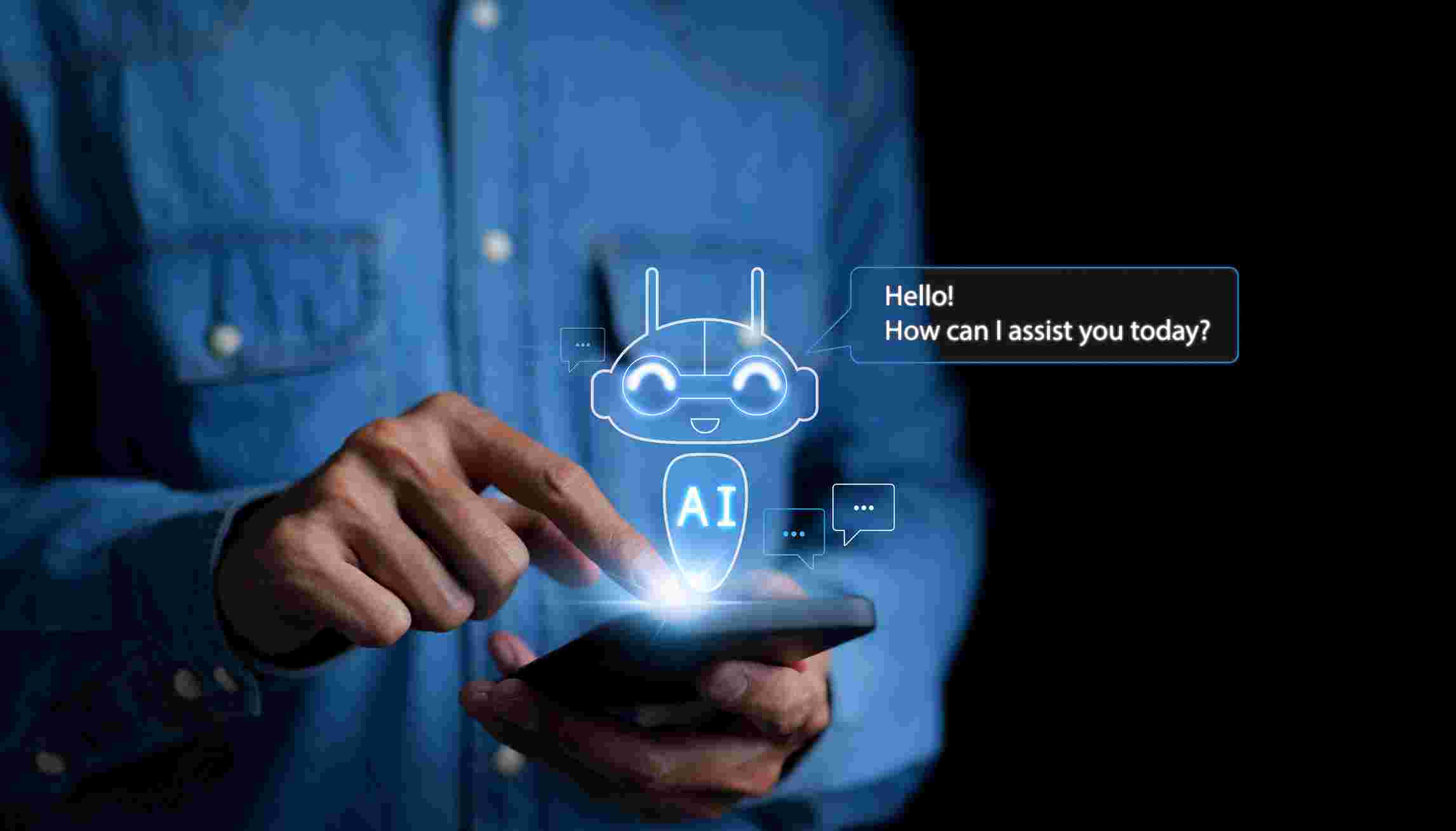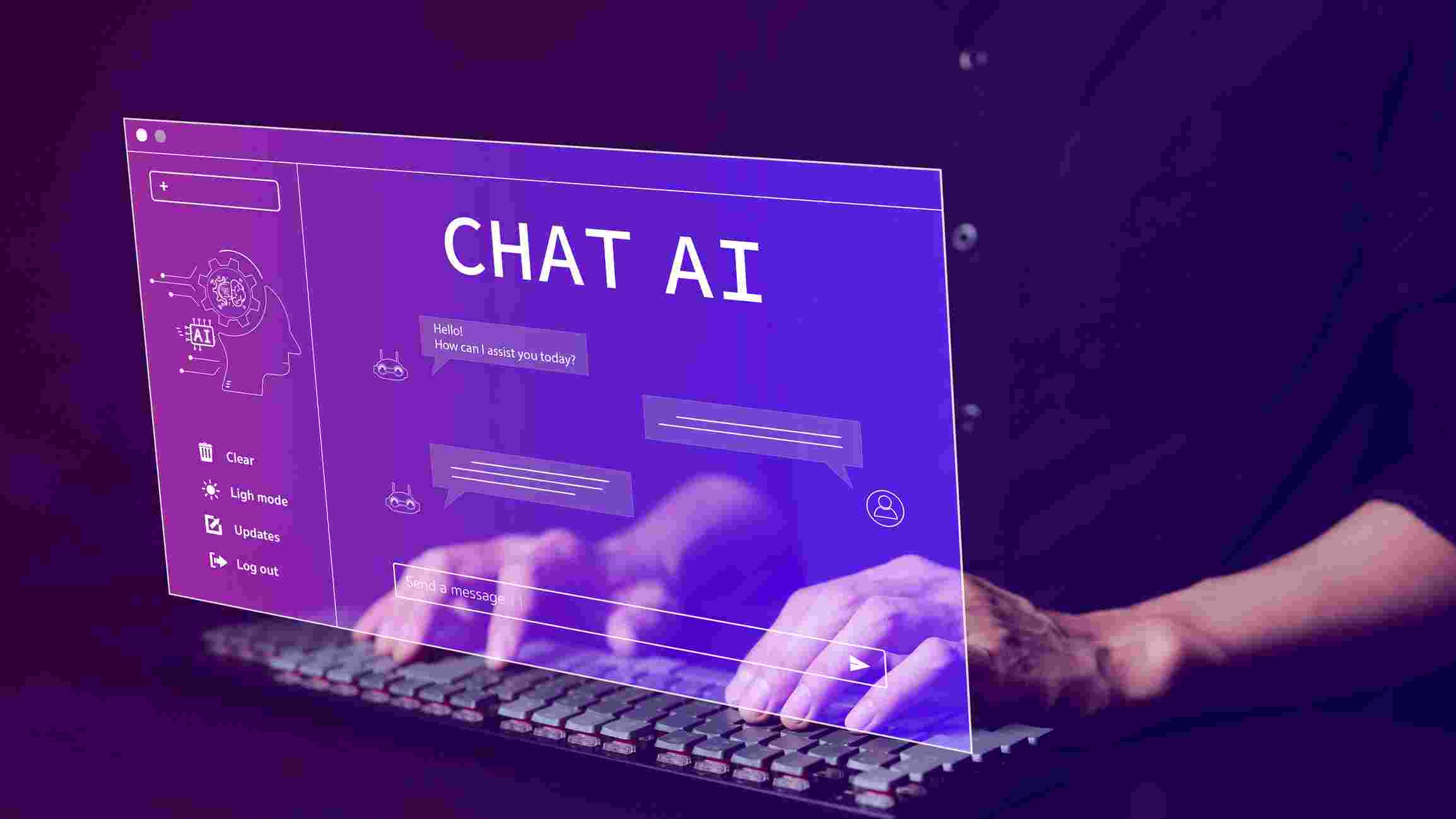Chris Murphy, Senior Innovation Specialist - Digital, looks at whether ChatGPT is a magic shortcut for time-pressured SMEs.
You have a dreadful night’s sleep thanks to next door’s car alarm, only for the health app to say you clocked up a solid eight hours. After work, you ask your smart speaker to play something by Oasis and it starts talking about homeostasis. And you end the day watching a shocking film recommended for you by your streaming service.
If such minor annoyances weren’t enough, there’s Google’s chief executive revealing in the Financial Times that the prospect of unregulated artificial intelligence (AI) keeps him awake at night, while Elon Musk and Apple co-founder Steve Wozniak are amongst 33,000 who signed an open letter stating that “AI systems with human-competitive intelligence can pose profound risks to society and humanity” [i].
We’ve been increasingly providing support for businesses about AI – from hosting workshops to one-to-one support. It’s an area that most businesses are beginning to explore in some way. But we’ve found that high level discussions about AI are often fraught, complicated, and lacking in different perspectives – not to mention prone to exaggeration. As a result, it can be difficult for SMEs to grasp the ways in which AI might impact their bottom line, workforce, and long-term strategy.
AI may ultimately prove transformative for some and irrelevant or counterproductive to others. How can decision-makers determine into which category their firm falls, then? In the absence of comprehensive laws, clear guidelines, and years of experience, they may have little choice but to place their trust in nature’s hitherto most powerful computer – the human brain.

In a global, interconnected, tech-driven economy, it is more important than ever for business leaders to make sure they understand emerging opportunities and risks, so they can protect customers, workers, and commercial interests.
Below, we look at some of the pressing topics SMEs have been asking us about.
GC Business Growth Hub was part financed by the European Regional Development Fund (ERDF) 2014-2021. Thanks to this support, our innovation specialists have helped hundreds of SMEs in Greater Manchester to use digital technologies to enhance their business performance – from improved sales automation, data capture and customer service to intelligent project and resource management, and game-changing collaborations.
What is AI?
The UK government defines AI as the “use of digital technology to create systems capable of performing tasks commonly thought to require intelligence” [ii]. In other words, teaching computers to think and learn like humans.
AI is about giving computers the ability to learn from data, follow instructions (algorithms) telling it how to process and analyse the data, and make smart decisions based on the patterns it recognises.
And therein lies the difference between AI and traditional computer programmes: its software and hardware allow it to learn from data and improve its core functions over time [iii].
How can AI help my marketing activities?
The rapid rise of large language model chatbots such as OpenAI’s ChatGPT and image generators such as Midjourney, and recent launch of Google Bard, has done more than anything to thrust AI into the spotlight, with more and more companies eyeing up potential time-saving opportunities.
One obvious area where these tools offer potential shortcuts is website content. Rather than using hours of your time, type a question or two into a chatbot and a few seconds later you’ve 500 words to copy and paste in your content management system (CMS).
If it sounds too good to be true, that’s because it is. Given that chatbots pick out and regurgitate what’s already been written before, what you get is, by definition, unoriginal. At best, that means bland content that isn’t likely to reflect well on your business, or even get readers scanning beyond the first paragraph; worse still, it throws up the potential for plagiarism.
Then there’s search engine optimisation (SEO): Google simply doesn’t like automatically generated web content. It announced this much in August 2022 [iv], underlining that its automated ranking systems reward ‘helpful content’ – i.e. where visitors feel they’ve had a satisfying experience – rather than blog posts and the like that were created only with SEO in mind.

Businesses were not only strongly encouraged to write content for the reader, but warned: “If you use automation, including AI-generation, to produce content for the primary purpose of manipulating search rankings, that's a violation of our spam policies.”
The message is clear: create original and authentic content that answers readers’ questions.
That’s not to say that chatbots shouldn’t be used to generate ideas, or even the basis for first drafts. But, checking facts, bringing the material into line with your company’s tone of voice, and acknowledging sources – even if the source is a chatbot – is essential.
Helpfully, Google provides the tools to self-assess whether the content you’re creating is useful and reliable, via these Content and quality questions and Expertise questions.
Can AI chatbots do my accounts?
Chartered certified accountants and GC Business Growth Hub partners Leavitt Walmsley Associates (LWA) explain how accountants might be able to use artificial intelligence software to improve productivity. Speak to LWA’s in-house expert Matt Jones on 0161 905 1801 / matt@lwaltd.com.
A number of cloud-based accounts software programmes, such as Xero and Dext, have been available to businesses for several years, making bookkeeping more automated, quicker and easier – and therefore increasing efficiency and productivity, and enhancing an SME’s ability to make better business decisions through management accounts forecasting.
AI is already being used to automate many of the tasks that accountants traditionally carry out, such as data entry, analysis and reporting. As AI continues to develop, it is likely to have an even greater impact, freeing up accountants to focus on more strategic and value-added work.
Recently in the US, a test was carried out asking ChatGPT to produce a tax return for an individual, and whilst it got the basis right, it didn’t quite work out the tax due correctly. Hence why AI alone is not enough when it comes to carrying out important legislative accountancy-related tasks.
However, chatbots can be successfully used to assist you in some of your accountancy related queries. For example, if you’re looking to set up a business or change the formation of your current trading style, you could ask “What are the differences between becoming a sole trader vs a limited company?” Again, it would be advisable to then discuss the answer with an accountant to ensure the data is up to date and accurate for your specific circumstances.

Here are some additional ways in which AI can be used in accounting:
- Data entry and analysis: AI can be used to automate the process of entering data into accounting systems. This can save accountants a significant amount of time and effort, and it can also help to improve the accuracy of data entry. AI can also be used to analyse financial data and identify trends. This information can be used to help businesses make better financial decisions.
- Reporting: AI can be used to generate reports on financial data. This can save accountants a significant amount of time and effort, and it can also help to improve the accuracy and timeliness of reports.
- Fraud detection: AI can be used to detect fraudulent activity. This can help businesses protect their financial assets and ensure that their financial statements are accurate.
Overall, AI has the potential to revolutionise the accounting profession. By automating tasks and providing accountants with new tools and insights, AI can help accountants and their clients to be more productive, efficient, and effective.
However, whilst accountancy software might allow automation of many sales related tasks and can speed up your bookkeeping process, you still need to have this information assessed and reported to HMRC by a qualified accountant. This helps to avoid charges payable by your company to HMRC and it is worth noting changes to the new HMRC VAT Penalty System that became effective on 1 January 2023.
Get in touch
Please contact us at 0161 3593050 or query below.
Take that first step and we’ll support you with whatever you need to succeed.
Sign-up to our newsletter
Insights, news, events and opportunities straight to your inbox.